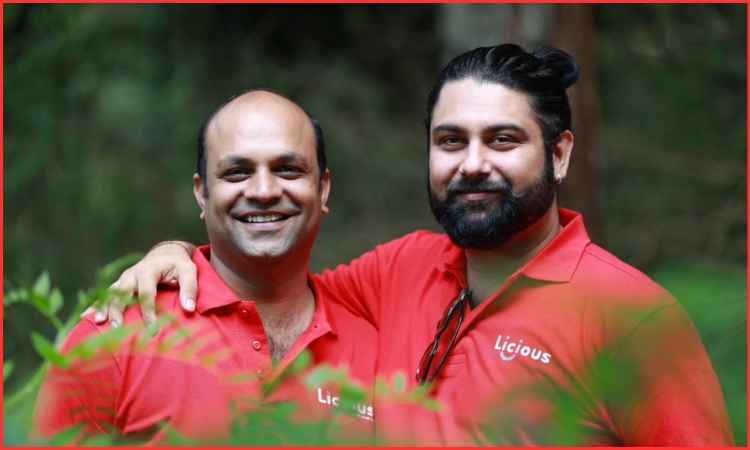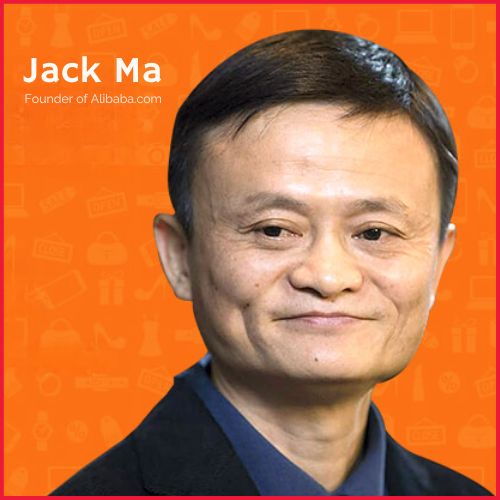
Image credit: Jungleworks
You love relishing non-veg, don’t you? Well, there are certain Tuesdays, Thursdays, and Saturdays when your heart has melted, as to how this non-veg is for you. Just a glimpse of your long-to-be-relished non-veg dishes or a mouthful of the most delicious chicken, mutton, or fish is just another yearning that becomes heavier on these vegetarian days. Even if showered with love to rendezvous, sometimes you don’t find what you want for a quick bite of these pure non-veg dishes at home.
But it all does not concern you anymore today.
Yes, in our society today, Licious has brought fresh meat and fish to be no longer aged. Be it chicken, meat, fish, seafood, eggs, or cold cuts, Licious will always be there to deliver the best to your doorstep.
In this article, we will understand the success story of the brand Licious, including its startup story, owner, revenue model, business model, growth, competitors, funding and investors and more.
Highlights of the Licious
| Company Name | Licious |
| Headquarter | Banglore |
| Founders | Vivek Gupta and Abhay Hanjura |
| Industry | E-commerce guide and food and beverage |
| Founding Year | September 2015 |
| Parent Company | Delightful Gourmet Private Limited |
| Website | licious.com |
| Total Employee | 30000 |
| Total Revenue | Rs. 685. 05 Crore |
What is Licious?

Licious is a Bengaluru brand of meat and seafood. The company delivers the finest, freshest, and cleanest fish, chicken, meat, and eggs online. Licious operates on a farm-to-fork model with total ownership of the back-end supply chain and the cold chain. There is also a separate recipe section available in their app. It assists the customers in cooking yummy dishes. And also educates the exotic chef style.
It has a presence in Bangalore, Hyderabad, Delhi-NCR, Chandigarh, Mumbai, Pune, Chennai, Coimbatore, Pondicherry, Jaipur, Kochi, Vizag, Kolkata, and Vijayawada.
Startup Story of Licious
Abhay Hanjura and Vivek Gupta started Licious in an attempt to reorganise the disorganised meat and seafood sector of India. They saw that 73% of Indians consume meat and seafood, but the meat industry was very unorganised, where over 95% of the market operates through traditional means, sometimes in unhygienic conditions. Notably, a typical Indian household consumes anywhere from 2000 to 3000 branded products, but meat remains largely unbranded.
The company vision, catalysed by the founders’ utter dissatisfaction with poor meat quality, was to “put life in this dead chicken”, symbolising quality and hygiene. Licious planned to bring global standards to the local meat sector by building the necessary infrastructure and putting in place completely new processes. Hanjura left his cushy job despite family opposition to realise this goal.
The principle of Licious, “we won’t sell what we won’t eat ourselves”, shows their commitment to quality. Their pursuit of quality meat procurement, processing, and sales practices has been paramount in establishing Licious as one of the leading online meat suppliers in India, overcoming age-old problems of unhygienic local markets and poorly maintained levels of product quality.
The Team and the Founders of Licious

The founders, Vivek Gupta and Abhay Hanjura are both the founders of Licious.
Vivek Gupta and Abhay Hanjura founded Licious. Gupta, a BCom from Punjab University and a Chartered Accountant, joined corporate finance in Tavant Technologies, serving subsequently as a Finance Controller for Helion Ventures and a Non-Executive Director for MobiCom Commune Pvt. Ltd.
Hanjura, a Hindu Kashmiri Pandit and ex-campus ambassador of Infosys began as a deputy manager at India Insure Risk Management Services. He also worked as Head of Business Intelligence and Associate Director at Futurisk Insurance Broking Pvt Ltd. Collectively, their varied professional experiences helped in the formation and development of Licious.
Business Model of Licious
Licious has an agriculture-to-table business model. The entire supply chain is handled by the company. Right from procurement, processing, and storage to reaching the consumer, ultimately the company’s responsibility is all of it. The startup has taken a page out of Amul’s book to eliminate the middlemen and take control of procurement directly along with processing and marketing. Talking about it, Abhay said, “I strongly believe that what Amul did for milk, Licious will do for animal husbandry.”
Licious says that 50% of the meat of the startup originates from its farms, which was 10% in 2020. Also, Licious owns processing and delivery hubs. Licious has also begun shedding the taboo associated with meat from day one. Instead of black plastic wraps, Licious packaged meat in tidy boxes and leakage-proof pouches and containers.
Transactions are highly secured and safe here with Licious. The business tries to provide the freshness, as well as the quality, of each item. They do have both a web platform and a mobile app. Customer loyalty is the biggest priority of the brand.
Revenue Model of Licious
The company earns most of its revenue from meat, seafood, marinades, and egg products. The balance remains for revenues generated from delivery to customers and related services. The company also states that it has completed over 2 million unique customer deliveries, with an average basket size of 700 rupees.
Funding of Licious
The amount collected under all rounds stood at $554.22 million, including the latest one on March 15, 2022. It was led by Amansa Capital, Kotak PE, Axis Growth, and others for $150 million.
During the previous year, the brand Licious marked itself as the 29th unicorn of India and became the first unicorn from the D2C space.
| Date | Money Raised | Name | Lead Investors |
| March 15, 2022 | $150 million | Series F | Amansa Capital and more |
| February 25, 2022 | $91 million | Series F | Gruhas Proptech |
| October 5, 2021 | $52 million | Series F | IIFL |
| June 11, 2021 | $192 million | Series F round | Multiples Alternate Asset Management, Brunei Investment Agency, Vertex Ventures |
| December 16, 2019 | $30 million | Series E | Vertex Growth Fund, 3one4 Capital, Bertelsmann India Investments, Nichirei Corp, Vertex Ventures Southeast Asia and India, Sistema Asia Fund |
| December 10, 2018 | $25 million | Series D | Nichirin, 3one4 Capital, Bertelsmann India Investment, Vertex Ventures Southeast Asia and India, UCLA, Sistema Asia Fund |
| September 26, 2018 | $25 million | Series C | Bertelsmann India Investments and Vertex Ventures Southeast Asia & India (part of the Vertex Holdings network of funds). The University of California, Los Angeles (UCLA), also invested in the company along with existing investors Mayfield India, 3one4 Capital, Sistema Asia Fund, InnoVen Capital |
| March 29, 2017 | $10 million | Series B | 3one4 Capital and Mayfield Fund Sistema Asia Fund, Neoplux Technology fund |
| April 21, 2016 | $3.5 million | Series A | Mayfield Fund, 3one4 Capital |
| September 24, 2015 | $1 million | Seed Round | T.V. Mohandas Pai, Manipal Global |
Investment of Licious
Licious has invested 1 time so far. Licious’ first funding round was at Pawfectly Made, wherein it invested approximately $192 million on April 27, 2022. Licious and the same also became the strategic partner of a Bengaluru-based pet food startup.
Acquisition by Licious
By acquiring the Bengaluru-centred offline retailer ‘My Chicken and More’, Licious managed to buy the retailer for between INR 150 cr and 200 cr. The OutTrip has 23 stores in the city. As per co-founder Vivek Gupta, this deal will help Licious expand faster into southern India.
This cash and equity deal adds a strong physical presence in Bengaluru to Licious, increasing the total number of stores to 26.
Growth and Revenue of Licious
The enterprise experienced an explosive growth of 500% over the last few years and maintained its momentum. All product categories contributed their parts towards the business growth, but it is primarily the ready-to-cook and ready-to-eat categories that have driven revenues. Products such as the kebab range & chicken spreads found favour, with quick traction being experienced by new launches such as tandoori products. Licious is hailed as the largest player in this segment.
The company has enjoyed repeat purchase rates of 90% and continues to enjoy the same. Licious is also proud of the fact that the company has successfully catered to more than 2 million unique customers in the previous year.
People usually say that most Indians are vegetarians. But this is not true; more than 73% of the population of India eats meat. This is the biggest fact of all behind which Licious has grown. Surveys state that the fresh meat and seafood market is very unorganised. This is one reason why online channels came up to help people around. Hygiene and quality were promised by Licious to its customers.
Licious quietly opened its first offline store in Bengaluru earlier and is expecting to become profitable in the next 12-18 months. Licious recorded over two million unique customers till now.
As expected, by the year 2026, Licious valuation stands at $2 billion. The company has 3000 employees. It processes over 1.2 million orders every month.
Competitors of Licious
The top leaders in the same competition in the market are:
- ZappFresh
- TenderCuts
- FreshToHome
Future Plans of Licious
Licious has very aggressive plans. The company hopes to go public in 2026 with a valuation upwards of $2 billion. It also plans to have a significant brick-and-mortar presence by opening 50 stores by March 2026. Besides, Licious plans to diversify its portfolio by adding ready-to-cook marinated items and new products like momos. In a race for quick commerce, improving delivery times has been a central focal point for Licious. These plans mark a determined drive by the company toward growth and industry leadership.
Conclusion
The company has achieved a great name and fame in India in different sectors of work such as E-commerce, Food and beverages. The brand has earned this much of a reputation and success shows customer satisfaction.














